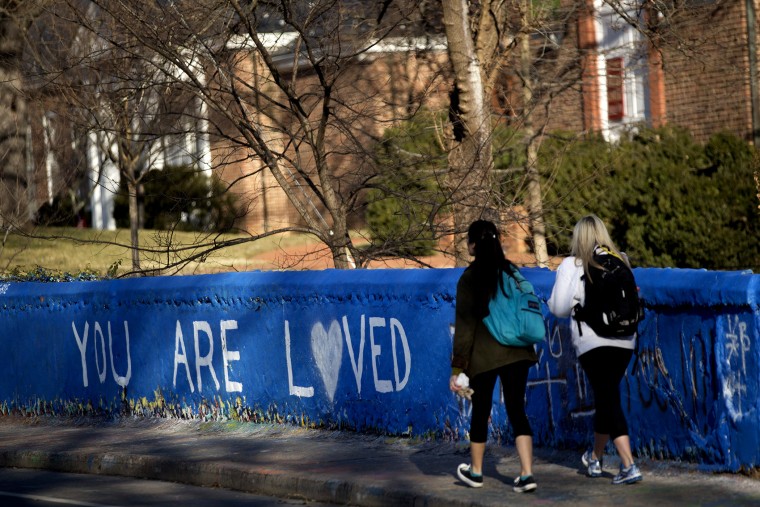When a bill to protect rape victims is met with vocal resistance from survivors, you know something is wrong.
In the wake of controversies at colleges and universities across the country, legislators have introduced a series of bills that would dramatically alter how assaults and harassment on campus are handled. Two such bills, passed in the Virginia House and Senate this week, would require Virginia colleges and universities to turn over some sexual assault cases to local law enforcement, even without the victim’s consent.
While this proposal may seem intuitive to many, the bills have been met with protest from those who know best: survivors of sexual violence. Legislators have nominally introduced the bills to help protect campus communities -- but, if passed, this “mandatory reporting” legislation will leave students less safe, not more.
RELATED: University of Virginia president addresses sexual assault
Under Title IX, a 1972 civil rights law that guarantees equity in education, campus survivors are given the right to report sexual violence to college officials through an administrative process that provides a different, and parallel -- but not mutually exclusive -- response to that of the criminal justice system. As dozens of survivors, including ourselves, have attested over the years, many colleges are failing to live up to their Title IX obligations. But, as survivors will just as quickly explain, that means neither that the campus system is without merit, nor that it should be eviscerated in favor of a failing criminal justice system.
"In the face of survivors’ widespread reluctance to involve law enforcement officials in their lives, instituting provisions that require survivors’ cases be sent to police – without their consent – discourages reporting to anyone."'
Rape is the most underreported crime in the United States. Survivors choose not to report to police for any number of reasons: fear or distrust of law enforcement; desire to protect their assailant, who may be a former or current partner or family member; unwillingness to participate in a retraumatizing criminal process that takes years to resolve; fear of deportation or criminalization themselves; or recognition of law enforcement’s historical and enduring failure to hold perpetrators accountable at all. (According to the Rape, Abuse, and Incest National Network, only three in every 100 rapists ever spend a day in jail.) For many male and gender-queer survivors, state laws fail to recognize their experiences of harm as violence at all.
In the face of survivors’ widespread reluctance to involve law enforcement officials in their lives, instituting provisions that require survivors’ cases be sent to police -- without their consent -- discourages reporting to anyone. Indeed, time and again campus survivors tell us that, had their schools been empowered to turn their reports over to the police without their permission, they would have reported to no one at all.
RELATED: The revolt on sorority row
That means legislators’ stated goal -- to get violent students off campus and keep the community safe -- will fail. Police won’t see these reports, and neither will school administrators. If survivors don’t feel safe reporting their assaults, perpetrators will be free to reoffend with impunity.
Perhaps more importantly, if survivors stop reporting to campus officials in an effort to stay out of the criminal justice process, they will lose the Title IX-mandated services they so desperately need: housing accommodations (to move them out of a shared dormitory with their perpetrator), academic support (to help them get an extension on a paper due the day of a civil protection order hearing), and free counseling. Without this support, many survivors will see their grades drop, lose scholarships, or be left no option but to drop out of school altogether. Students will then find themselves in much the same situation as their predecessors before Title IX, facing terrible barriers to learning and thriving on campus.
Instead of limiting survivors’ agency, legislators should work to increase the number of options available to victims in the wake of violence. Schools that provide clear, transparent and, most importantly, multiple reporting options for survivors have seen their rates of reports increase, as survivors feel more comfortable coming forward.
At its heart, rape is the denial of a person’s agency, the ignoring of a victim’s voice. Survivors have said loud and clear that mandatory reporting legislation will keep them silent and unsafe. Let’s listen to them.
Bolger and Brodsky are the founding co-directors of Know Your IX, a national student campaign against campus gender-based violence.
